The Musical Memories of John Simkin
The first time I became aware of music was listening to Two-Way Family Favourites on the BBC Light Programme while eating Sunday lunch in the early 1950s. As my father did shift-work family meals were a special occasion. The fact that the radio was on suggested that not too much conversation went on in our house. The programme started during the war as Forces Favourites. By 1950 the two presenters of the programme were Jean Metcalfe and Cliff Michelmore and I found out recently that the BBC, determined to raise the moral tone of the programme, decided the "mention of fiancées and girl friends was declared taboo; there was to be no banter; and noisy jazz was forbidden".
The signature tune of the programme was With a Song in My Heart played by Andre Kostelanetz and his Orchestra. However, the first song that I first took interest in was Singing in the Rain by Gene Kelly. I must have told my mother I liked the song because I remember her calling me into the kitchen when it was playing on the radio. It became special to me as she always referred to it as "John's song". Even when I hear it now it brings a smile to my face and the film is still my favourite Hollywood musical.
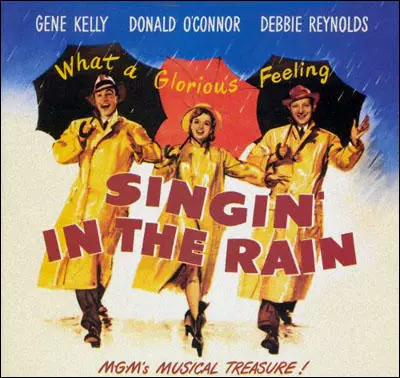
After my father died in 1956 I became quite an introverted individual and spent a lot of my time in the evenings listening to the radio in my bedroom. As soon as I took a serious interest in music I stopped listening to the BBC Light Programme and turned my attentions to Radio Luxemburg. The reception was always very bad but you picked up enough to help you decide what music you liked. For people under the age of fifty, the idea of listening to music in this way must seem very strange.
There were historical reasons for this behaviour. In 1922, the Conservative government awarded a monopoly broadcasting licence to the British Broadcasting Company. This arrangement lasted until 1927, when the broadcasting licence of the original BBC was allowed to expire. The assets of the former commercial company were then sold to a new non-commercial British Broadcasting Corporation, which operated under a UK charter from the Crown. The BBC was extremely hostile to modern music and after the war tended to ignore the latest developments coming from the United States.
Radio Luxemburg saw a gap in the market and from 2nd July, 1951, English programmes moved from long wave to the medium wave frequency of 208 metres (1439 kHz). They employed disc-jockeys to record shows in London. Many of these programmes were sponsored by record companies. This included Peter Aldersley, Sam Costa, Alan Dell, Keith Fordyce, Alan Freeman, David Gell, Tony Hall, Jack Jackson, David Jacobs, Chris Denning, Brian Matthew, Don Moss, Pete Murray, Ray Orchard, Shaw Taylor and Jimmy Young. (Radio Luxemburg had a monoploy in this market until March 1964, when Radio Caroline began daytime commercial radio transmissions to southern England from a ship anchored less than four miles off the coast).
I did not buy records because the family had no means of playing them. However, in 1958, my mum's brother, gave us his old radiogram, as he had just purchased the latest model. I was thirteen at this time and as my brother was too young to be interested in music and my sister had left home, my mum gave me the money to buy three records. I chose the following: That'll Be The Day by Buddy Holly, Big Man by The Four Preps, and Donna by Ritchie Valens. The first two were hits in the UK but Richie Valens' record did not reach the charts in the USA. It was Donna's "B" side, La Bamba that eventually became my favourite.
On 3rd February, 1959, Buddy Holly (22) and Richie Valens (17) were killed in the same air-crash. Donna now became a hit in the USA reaching second place. However, it was Marty Wilde who had the hit with the cover in the UK (3rd). La Bamba only became a hit in the UK after the release of the film La Bamba in 1987. The film was written and directed by Luis Valdez, the son of a Mexican migrant.
The Richie Valen's record illustrates my desire to buy the American originals that were rarely played on the BBC Light Programme. For many years I never bought any records that were made by English artists. Until the Beatles came along, young recording artists just copied what was going on in the United States. In my view, why not buy the original. Of course, that took a lot of effort as the BBC tended to play the cover records instead of the originals. One of the many reasons why I spent so much time listening to Radio Luxemburg.
At the age of fifteen I got my first job working in a factory. I met a man, Bob Clark, who was in his early thirties. He was married but did not have children (his first child died in childbirth and his wife was unwilling to experience pregnancy again). My father had been killed in an accident four years previously and he sort of intellectually adopted me. He clearly wanted to have an influence over me and I was probably looking for a father figure. This relationship included him him trying to shape my interest in subjects such as politics, literature and music.
Bob was a great fan of Frank Sinatra and he lent me two of his albums. The first one was Songs for Young Lovers (1953) and included the following tracks: My Funny Valentine (Richard Rodgers and Lorenz Hart), The Girl Next Door (Ralph Blane and Hugh Martin), A Foggy Day (George Gershwin and Ira Gershwin), Like Someone in Love (Jimmy Van Heusen and Johnny Burke), I Get a Kick Out of You (Cole Porter), Little Girl Blue (Richard Rodgers and Lorenz Hart), They Can't Take That Away from Me (George Gershwin and Ira Gershwin), Violets for Your Furs (Tom Adair and Matt Dennis).
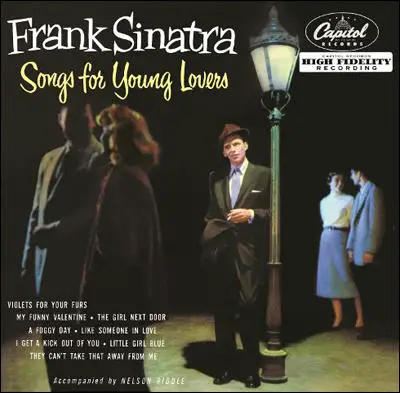
The second was Swing Easy! (1954). This included Just One of Those Things (Cole Porter), I'm Gonna Sit Right Down (And Write Myself a Letter) (Fred E. Ahlert and Joe Young), Sunday (Chester Conn, Benny Krueger, Ned Miller and Jule Styne), Wrap Your Troubles in Dreams (Harry Barris, Ted Koehler and Billy Moll), Taking a Chance on Love (Vernon Duke, Ted Fetter and John Latouche) Jeepers Creepers (Harry Warren and Johnny Mercer), Get Happy (Ted Koehler and Harold Arlen), All of Me (Gerald Marks and Seymour Simons).
I was very impressed, not only by Sinatra's voice, but by the arrangements and the quality of the songs. However, because of our age difference, I could not bring myself to buy any Frank Sinatra records at the time. That came later. However, he did open up my mind to another type of music. This included big band jazz as I was especially impressed with the amazing arrangements of Nelson Riddle.
At this time I was buying singles that sold well in the United States but were hits in the UK for cover artists. I used to buy the New Musical Express that included the American charts. Radio Luxemburg had an American hits show but the British cover was released before the original. One of my favourite artists during this period was Gene McDaniels. He was a jazz singer with the Les McCann band who was signed by Simon Waronker of Liberty Records. Waronker, his first artist was Julie London, attempted to bring some class to pop records.
Waronker signed McDaniels on the promise he would be allowed to make jazz records. In 1960 he released Sometimes I'm Happy, Sometimes I'm Blue. It was the first album I bought and every track was extremely good. This included Deed I Do, How Long Has This Been Going On, Green Door, Never Like This, And The Angels Sing, In A Sentimental Mood, Love Me Tender, Autumn Leaves, The High And Mighty, The Facts Of Life, When I Was A Child and Sometimes I'm Happy.
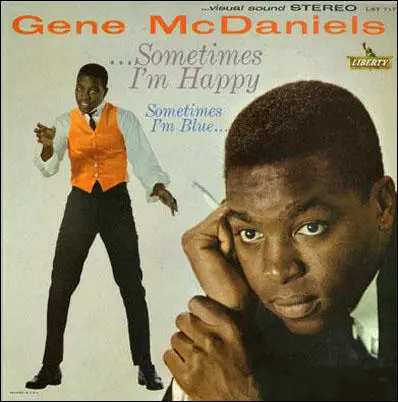
Gene McDaniels was given to legendry producer, Snuff Garrett, with whom he recorded his first hit, A Hundred Pounds of Clay, which reached number 3 in the Billboard Hot 100 chart in early 1961 and sold over one million copies. Craig Douglas made the cover version and it reached number 3 in the UK, even though the BBC refused to play it because the censors interpreted the song as suggesting women were created simply to be sexual beings.
McDaniels next hit was Tower of Strength which reached number 5 in the Billboard Hot 100 chart and number 5 in the R&B chart. One of the first hits written by Burt Bacharach, the British singer, Frankie Vaughan, got his version out first and was number 1 on the UK Singles Chart in 1961, before McDaniels record was released in the UK. Other minor hits include Point Of No Return (1962), It's A Lonely Town (1963) and Walk With A Winner (1965).
I was an early fan of Tamla Motown, the record label that was established in Detroit in 1959. You could not even hear these records on Radio Luxemburg. The reason for this that they appeared on Oriole records in the UK who did not sponsor any programs. Therefore the early records released by Stevie Wonder (Fingertips), who was only 13 years-old at the time, Mary Wells (Two Lovers and The One Who Really Loves You), Contours (Do You Love Me), Smokey Robinson (Shop Around and You've Really Got a Hold on Me), Barrett Strong (Money) and Marvin Gaye (Stubborn Kind of Fellow and Can I Get a Witness) were never hits and in 1964 Oriole went bust.
Other great records that I purchased during this period included Sam Cooke (A Change is Gonna Come and Bring it on Home to Me), Chuck Jackson (Any Day Now and I Keep Forgetting), Aretha Franklin (I Say a Little Prayer and I Never Loved a Man the Way I Love You), Randy Crawford (You Might Need Somebody, Everything Must Change and Rainy Night in Georgia), Dusty Springfield (The Look of Love), Sammy Turner (Raincoat in the River), Lou Rawls (You'll Never Find Another Love Like Mine and Lady Love), Jerry Butler (He Will Break Your Heart, Make It Easy on Yourself and Moon River), Arthur Alexander (Anna and You Better Move On)
I first discovered classical music in the years that followed my marriage in 1966. I did not know anything about this the subject and decided to join the Dartford Music Library. I also subscribed to The Classical Collection, that featured a different composer every two weeks. During this period I got to like Claude Debussy, Maurice Ravel, Antonín Dvořák, Gustav Mahler, Ludwig van Beethoven, Aaron Copland, Samuel Barber, Edvard Grieg, etc.
The track I have selected is Lark Ascending, that was written by Ralph Vaughan Williams in 1921. It is a musical interpretation of the poem, The Lark Ascending (1881) by George Meredith. The reason I have chosen this is that it reminds me of one of the most happiest periods of my life. I met my future wife, Judith, in 1963. We both lived on the Harold Hill council estate. Judith worked in a shop and used to have to work every Saturday. Therefore, we only had Sundays together. The only problem was that she was a strict Roman Catholic and had to go to Sunday mass with the rest of the family at midday. I eventually persuaded her mother to let her go to the early service. I used to meet her outside the church at 8.00 and we went for a long walk into the countryside. Although it was a large council estate, the church was situated on its edge and within minutes we were in the woods. We used to lay in a cornfield and convince ourselves that we were the only people alive in the world. I did not know this music at the time, the first time I heard it, I thought of those Sunday mornings, laying in the field and looking up into the sky, making plans about our future life.
On the whole I do not like opera but I do appreciate the work of Giacomo Puccini. I considered several pieces including songs from Madame Butterfly, Tosca, Turandot, La Boheme and Manon Lescaut, including Un Bel Di, Recondita Armonia, Vissi d'Arte, In Questa Reggia, Nessun Dorma, Che Gelida Manina, Si Mi Chiamano Mimi, Quando Men Vo and Donna Non Vidi Mai. I have chosen E Lucevan le Stelle by Andrea Bocelli. Some critics have claimed that Bocelli is not really an opera singer. Maybe that is why I like him. Born in Italy he has been blind since the age of twelve, following an accident playing football. He was hit in the eye playing goalkeeper during a match and suffered a brain hemorrhage. The jazz singer, Al Jarreau, has claimed that he has "the most beautiful voice in the world. With twenty million units sold, Sacred Arias became the biggest-selling classical album by a solo artist of all time.
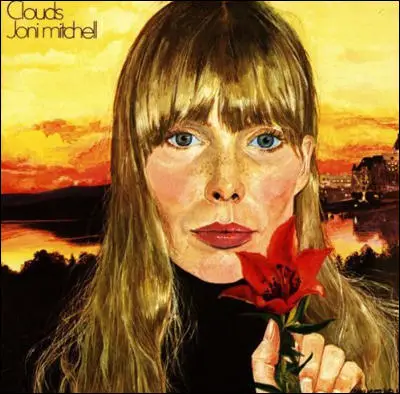
In the 1960s I became very interested in folk music. Joni Mitchell is a particular favourite. The one I have selected is because it is one of the only songs that I know that raises the question of the artist's relationship with the market-place. All real artists face a dilemma. Do they produce what they believe in? Or do they produce something they believe will sell. If they take the second option, they will be imitating something that is already popular. Great art is entering new areas and at first it is unlikely to have much of a following. This is an issue that Mitchell comments on in her song For Free. She tells us she is paid fortunes for making records that enables her to stay at the best hotels. Whereas the man in the street is playing for free.
One of the greatest concerts I have attended was one that featured Don Mclean (Albert Hall, 1972). He is mainly known for his two hit records, American Pie and Vincent in 1971. Mclean was a folk artist in the tradition of Woody Guthrie and as a sixteen-year-old began associating with Pete Seeger and The Weavers. When he testified before the House of Un-American Activities Committee (HUAC) in 1955 he refused to name members of the American Communist Party. He was convicted of contempt but did not serve a prison sentence the conviction was overturned on technical grounds. However, the group were dumped by their record label and were not allowed to perform on television or radio until 1961.
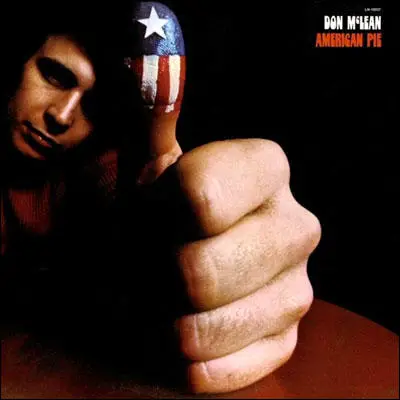
I actually prefer his first album, Tapestry, that was recorded in 1969, and attempted to capture the feelings of the protest movement in the 1960s. Mclean, like Seeger was involved in the struggle for African-American Civil Rights and against the Vietnam War. He was also an early campaigner for the environment. It was turned down by 72 different record companies before being released by Mediarts. It attracted good reviews but little notice outside the folk community. I have selected a track called Orphans of Wealth, a song that deals with poverty and the health system in America in the 1960s.
Other folk music I liked during this period included Janis Ian (At Seventeen and In the Winter), June Tabor (The Band Played Waltzing Matilda), Sandy Denny (Who Knows Where the Time Goes), Judee Sill (Jesus was a Crossmaker, Crayon Angels and The Kiss), Judy Collins (In My Life, Both Sides Now, and My Father), Tim Hardin (Hang on to a Dream and Reason to Believe), Jackson Browne (The Pretender and Running on Empty), Harry Chapin (Cats in the Cradle and Mr. Tanner), David Ackles (Road to Cairo, Love's Enough and Montana Song), Jacque Brel (Ne Me Quitte Pas and La Chanson des Vieux Amants) and Nick Drake (Riverman).
One of the greatest folk songs ever written is Skibbereen. The song about the Irish Famine is attributed to Patrick Carpenter, a poet native of Skibereen, and dates back to at least 1869. The son in the song asks his father why he left the village of Skibbereen, in County Cork, Ireland, to live in another country, to which the father tells him of the hardship he faced in his homeland. It ends on a vengeful note expressed by the son. The best versions are by Sinéad O'Connor and Don Stiffe.
I am also a great fan of the songwriting talents of Leonard Cohen. In 1971 he began a relationship with Jennifer Warnes. They used to appear on stage together. First as a back-up singer and then as a guest singer on Cohen's albums. In 1987 she issued the album of Cohen's songs, Famous Blue Raincoat. The album includes First We Take Manhattan, Bird on a Wire, Famous Blue Raincoat, Joan of Arc, Ain't No Cure for Love, Coming Back to You, Song of Bernadette, A Singer Must Die and Came So Far for Beauty.
Other great records that I purchased in my youth included Chuck Jackson (Any Day Now and I Keep Forgetting), Aretha Franklin (I Say a Little Prayer and I Never Loved a Man the Way I Love You), Randy Crawford (You Might Need Somebody, Everything Must Change and You Might Need Somebody), Lou Rawls (You'll Never Find Another Love Like Mine and Lady Love), Rose Royce (Love Don't Live Here Anymore and Is It Love You're After?), Gladys Knight (Midnight Train to Georgia and You're the Best Thing That Ever Happened to Me), Nina Simone (Feeling Good and I Put a Spell on You), Dionne Warwick (Walk on By and Anyone Who Had A Heart), Donny Hathaway (A Song for You), Jerry Butler (He Will Break Your Heart and Make It Easy on Yourself), Arthur Alexander (Anna and You Better Move On), Stevie Wonder (Never Dreamed You'd Leave in Summer, All I Do and Living in the City), Syreeta Wright (With You I'm Born Again, She's Leaving Home, Your Kiss is Sweet and Spinnin' and Spinnin') and Lou Johnson (There's Always Something There To Remind Me).
I have always been interested in protest songs. Some of the best include Woody Guthrie (Tear the Fascists Down and This is Your Land), Bob Dylan (With God on My Side), Joan Baez (Joe Hill), Pete Seeger (Which Side Are You On?), Tom Paxton (What Did You Learn in School Today? and Lyndon Johnson Told the Nation), Country Joe McDonald (I-Feel-Like-I'm-Fixin'-To-Die Rag), Crosby, Stills, Nash & Young (Ohio 1970 Kent State University), Buffalo Springfield (For What It's Worth), Phil Ochs (There But For Fortune, I Ain't Marching Anymore, Crucifixion and Here's to the State of Misssippi), Gil Scott-Heron (The Revolution Will Not Be Televised), The Impressions (People Get Ready), Mahalia Jackson (We Shall Overcome), Marvin Gaye (What is Going On?), Sam Cooke (A Change Is Gonna Come), Lou Rawls (Let's Clean Up The Ghetto), Mcfadden & Whitehead (Aint No Stopping Us Now), Nina Simone (Mississippi Goddam), The Specials (Free Nelson Mandela), Billy Joel (We Didn't Start the Fire), Billy Bragg (Between the Wars and There Is Power In A Union), Robert Wyatt (Shipbuilding), Steve Earle (Jerusalem, and The Revolution Starts Now) and U2 (Sunday Bloody Sunday).
My friend in the factory, Bob Clark, also introduced me the work of Dave Brubeck. As a young man I purchased Take Five (1959) and Unsquare Dance (1961). It was my younger brother, David Simkin, who first introduced me to avant garde jazz. I am afraid I found most of it too difficult. However, he did convert me to Miles Davis. This included his albums, Lift to the Scaffold (1958), Porgy & Bess (1958), Sketches of Spain (1959), In a Silent Way (1969) and Jack Johnson (1970).
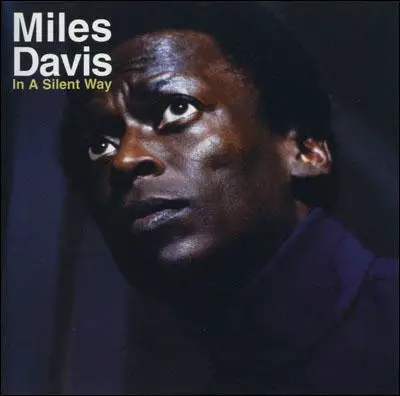
In the late 1960s Davis coming under the influence of rock music. In a Silent Way (1969) he recruited the guitarist, John Mclaughlin. Born in Doncaster his mother was a concert violinist. He received a classical training but as a teenager he moved to London and played with a series of Rhythm & Blues bands, including Alexis Korner, Georgie Fame, Graham Bond and Brian Auger. He also worked as a session musician and as a music teachers (one of his students was Jimmy Page. In 1969 he moved to the United States and began working with Miles Davis.
McLaughlin has made records in a wide variety of styles, including jazz, rock and classical. Indian music has been a major influence and established the Mahavishnu Orchestra, that included electric violins. His albums include: The Inner Mounting Flame (1971), Birds of Fire (1973), Apocalypse (1974), Visions of the Emerald Beyond (1975), Inner Worlds (1976). Most of his records are made up of long tracks that you cannot do justice by playing a three minute extract. Therefore, I have selected him playing Goodbye Pork Pie Hat, from his album, My Goal's Beyond (1971).
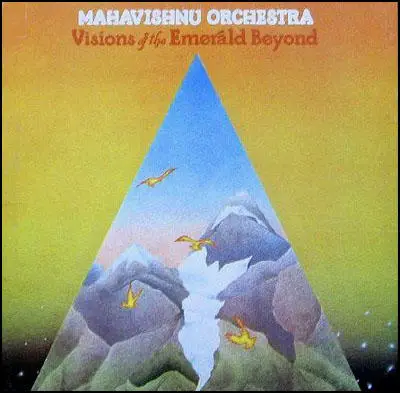
I want to return to Gene McDaniels, one of my earliest heroes. In 1971 he released Headless Heroes of the Apocalypse, an album that mixes soul, funk, jazz, and folk. In the early 1990s several of the songs were sampled by rappers and hip hop producers. He also became a songwriter and wrote several songs for people like Roberta Flack, Ray Charles and Della Reese. This includes Flack's number one hit, Feel Like Makin' Love. During the Vietnam War, McDaniels wrote the lyric Compared to What. It includes the words: "The president, he's got his war / Folks don't know just what it's for / Nobody gives us rhyme or reason / Have one doubt, they call it treason". McDaniels recorded it and it was later a hit on the Northern Soul scene. However, I prefer the Les McCann & Eddie Harris version.
In 1966, Paul Beaver and Bernard Krause formed Beaver & Krause, to record electronic music. Their early albums had a major influence on George Martin and the Beatles, especially The Beatles' Magical Mystery Tour album released in 1967. I am going to play a track from the Gandharva (1971) an album that featured Gerry Mulligan on baritone sax and Bud Shank on flute. It was recorded in San Francisco's Grace Cathedral. I especially like the track, By Your Grace.
Probably the best jazz record I have ever purchased is Mike Gibbs. Born in Zimbabwe he was a classically trained pianist who developed a love of jazz. He moved to England and wrote and arranged his masterpiece, Mike Gibbs, that was released in 1970. It featured all the leading British jazz musicians at the time such as Kenny Wheeler, John Surman, Barbara Thompson, Ray Warleigh, Alan Skidmore, Chris Pyne and Mike Osborne, as well as people from the rock and blues world such as Jack Bruce, Chris Spedding and Ray Russell. Although it received great reviews in the jazz press it never sold well and since then Gibbs has spent most of his time teaching. His early records are very rare and if found cost over £500. I could have selected any of the tracks on this album but as they often merge with each other I have decided to select the opening piece, Family Joy, Oh Boy!
Keith Jarrett is another jazz musician who is a classically trained pianist. A child genius he was giving concert performances at the age of seven. However, he upset his parents when he discovered jazz after hearing the music of Dave Brubeck. By the age of nineteen, he was recruited by Art Blakey. Later he moved on to Miles Davis when he was fusing jazz and rock.
In 1970 Jarrett began to perform as a solo musician. This including long piano improvisations in concert halls that were later released as albums. The most successful of these was The Köln Concert (1975) performed at the Opera House in Cologne that lasted 67 minutes. It went on to become the best-selling solo album in jazz history, and the all-time best-selling piano album, with sales of more than 3.5 million. It was also used in Nick Roeg's Bad Timing (1980).
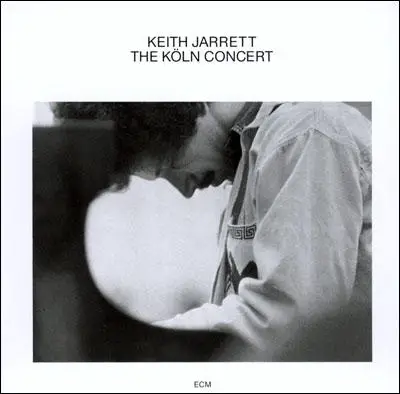
Jan Garbarek is a jazz musician from Norway who is also active in classical music. He has also made full use of Norwegian folk melodies and religious music. This has involved collaborations with groups like the Hilliard Ensemble who have attempted to keep alive church music of the Middle Ages. In 1994 they produced the album Officium. It was recorded at the monastery of Propstei St. Gerold in Austria. This track, Parce Mihi Domine, was written by Cristóbal de Morales, a 16th century Spanish composer.
I have not selected very much recent music but music that I have especially enjoyed over the last 30 years include: Santayana Harris, (Ballad of Birmingham), Davy Spillane (Caoineadh Cu Chulainn Uilleann Pipes), Bonnie Raitt (I Can't Make You Love Me and Nick of Time), Mary Chapin Carpenter (The Way I Feel, Something Tamed Something Wild and On With the Song), Barbara Cook (Losing My Mind, Send in the Clowns and Stars), Bat for Lashes (Daniel, Sad Eyes and Laura), Beth Nielsen Chapman (How We Love, Emily, Sand and Water, I Keep Coming Back To You, Kiss), Thin Lizzy (Whiskey In The Jar and Boys are back in Town), Dion DiMucci (King of the New York Streets), Oleta Adams (Get Here, Everything Must Change, Never Knew Love, Don't Let the Sun Go Down on Me), Janet Jackson (Together Again), Show of Hands (Arrogance Ignorance And Greed, Country Life and Roots), Paul Anka (Eye of the Tiger, Everybody Hurts and It's My Life), Donald Fagan (Trans-Island Skyway, Weather in My Head and I'm Not the Same Without You), Annie Lennox (No More I Love You's) and Jon Allen (Night and Day, Lady of the Water and Jonah's Whale).
I have also enjoyed soul music produced in Britain. I have especially been impressed by Dusty Springfield (Son of a Preacher Man and Mama Said), Kiki Dee (The Day Will Come Between Sunday and Monday, How Glad I Am and Got the Music in Me), Grace Jones (Private Life, Slave to the Rhythm, Pull Up the Bumper and Demolition Man), Junior Giscombe (Mama Used to Say), Dee C Lee (See the Day and The Paris Match), Soul II Soul (Back to Life and Keep on Movin), Massive Attack (Unfinished Sympathy), The Style Council (Walls Come Tumbling Down!), Corinne Bailey Rae (Like a Star, Put Your Records On and Trouble Sleeping), Dina Carroll (It's Too Late, The Perfect Year, This Time, Don't Be A Stranger and Someone Like You), Beverly Knight (Gold and Shoulda Woulda Coulda). Robert Palmer (Mercy Mercy Me/Want You, Every Kinda People, Some Guys Have All the Luck, I Didn't Mean to Turn You On, She Makes My Day, Addicted to Love and Simply Irresistible), Roachford (Cuddly Toy) and Des'ree (Feel So High, Life and You Gotta Be).
Lisa Stansfield is one of our most successful soul singers and has enjoyed a long career with hits stretching over 14 years. People Hold On (1983 - 11), This is the Right Time (1983 - 13), All Around the World (1989 - 1), Live Together (1990 - 10), Change (1991 -10), Time to Make You Mine (1991 - 14), Someday I'm Coming Back (1992 - 10), In All the Right Places (1993 - 8) and The Real Thing (1997 - 9). Stansfield has won numerous awards, including Brit Awards, Ivor Novello Awards, Billboard Music Award, World Music Award, ASCAP Award, Women's World Award, Silver Clef Awards and DMC Awards. She has sold over twenty million albums worldwide.
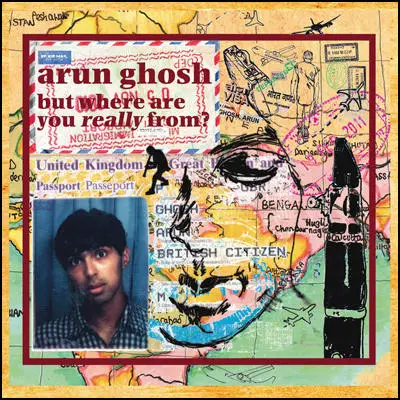
Recently I became aware of the work of Arun Ghosh. Both his parents are Indian immigrants and was brought up in Bolton. His first musical experience was playing the recorder at primary school. He then moved on to the clarinet and eventually received a classical music education at Cambridge University. Ghosh fell in love with jazz and his first album, Northern Namaste (2008) featured a variety of Indian instruments. This was followed by Primal Odyssey (2011) and A South Asian Suite (2013). His work reflects the music of Bangladesh, Nepal, Pakistan, India and Sri Lanka but shows the influence of jazz, urban and punk music.
Ghosh's latest album, But Where Are You Really From? (2017) examines this unusual combination of influences. Tracks like Snakebite with Bacchus, Dagger Dance and Nataraja are based on Indian themes, whereas Pastoral Sympathy (This Land is Mine) is his impression of the West Pennine Moors. It also includes a version of Jerusalem, a tune that is closely associated with British nationalism.
I have never been a fan of television talent shows but today it seems to be the main way to become famous as a singer. I do not watch them and therefore I missed Rebecca Ferguson when she appeared on the X-Factor for the first time. However, when you watch her audition of this 23 year-old mother of two children singing a Change is Going to Come (2010) you can see why she needed this kind of programme to make it. Amazingly she only came second in the competition. Her debut single, Nothing's Real but Love (2011) charted at number 10 on the UK Singles Chart. Other hits followed, Backtrack (15 - 2012) and I Hope (15 - 2013). In recent years she has moved away soul and is more of a jazz singer as you can see with these tracks that were included on her album Lady Sings the Blues (2015): Summertime, God Bless the Child, Don't Explain, What Is This Thing Called Love, My Man, Willow Weep for Me and Lover Man (Oh Where Can You Be),
Final Selection
(1) La Bamba by Ritchie Valens (1958)
(2) Just One of Those Things by Frank Sinatra (1954)
(3) How Long Has This Been Going On by Gene McDaniels (1960)
(4) What is Going On? by Marvin Gaye (1971)
(5) Lark Ascending by Ralph Vaughan Williams (1921)
(6) E Lucevan le Stelle by Giacomo Puccini (1899)
(7) For Free by Joni Mitchell (1970)
(8) Orphans of Wealth by Don Mclean (1969)
(9) Change is Gonna Come by Sam Cooke (1964)
(10) The Look of Love by Dusty Springfield (1967)
(11) Who Knows Where the Time Goes by Sandy Denny (1968)
(12) At Seventeen by Janis Ian (1975)
(13) Love's Enough by David Ackles (1972)
(14) First We Take Manhattan by Jennifer Warnes (1987)
(15) Goodbye Pork Pie Hat by John Mclaughlin (1970)
(16) Compared to What by Les McCann & Eddie Harris (1969)
(17) Family Joy, Oh Boy! by Mike Gibbs (1970)
(18) By Your Grace by Gerry Mulligan, Paul Beaver and Bernard Krause (1971)
(19) The Köln Concert by Keith Jarrett (1975)
(20) Parce Mihi Domine by Jan Garbarek and The Hilliard Ensemble (1994)

